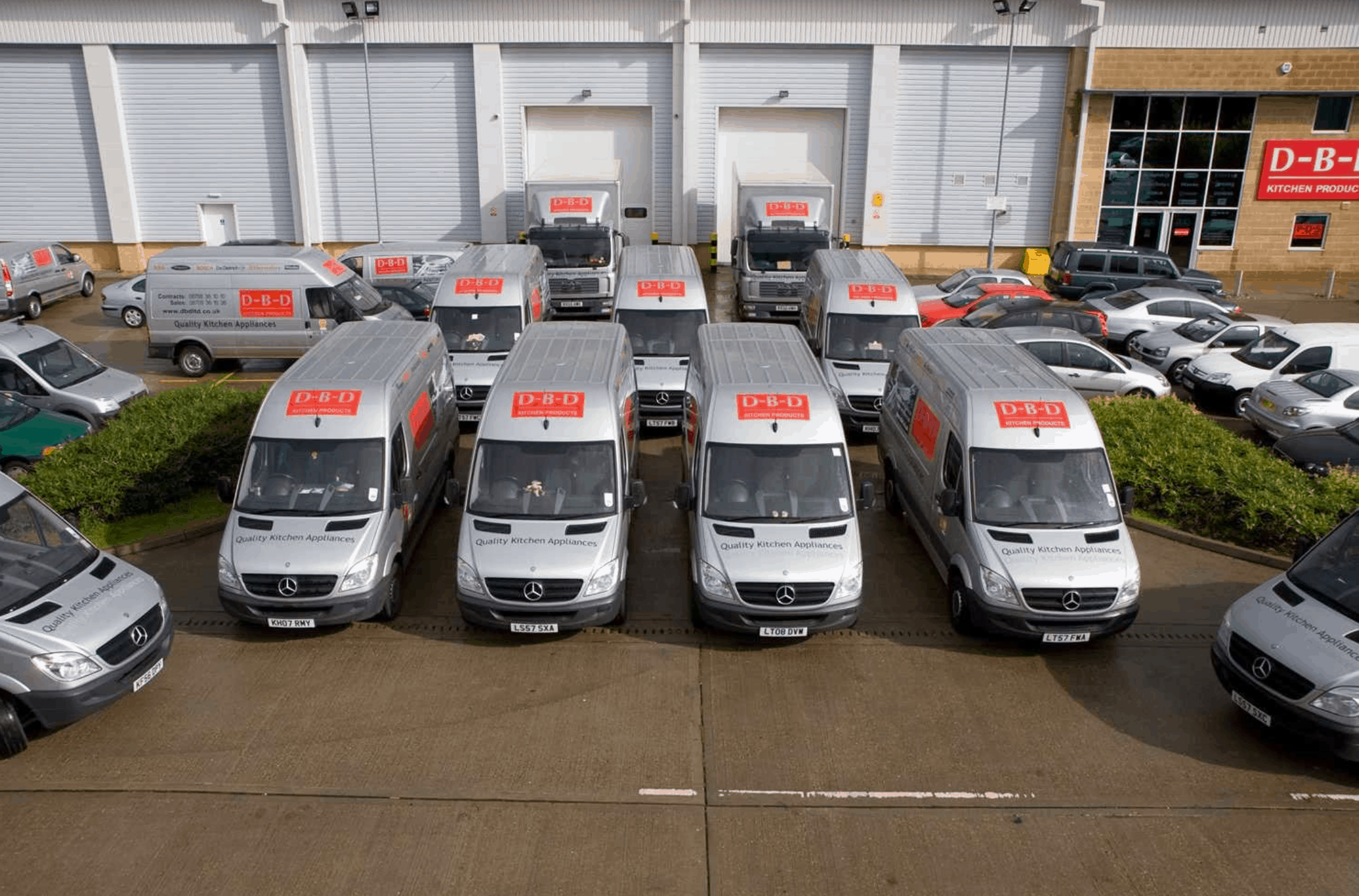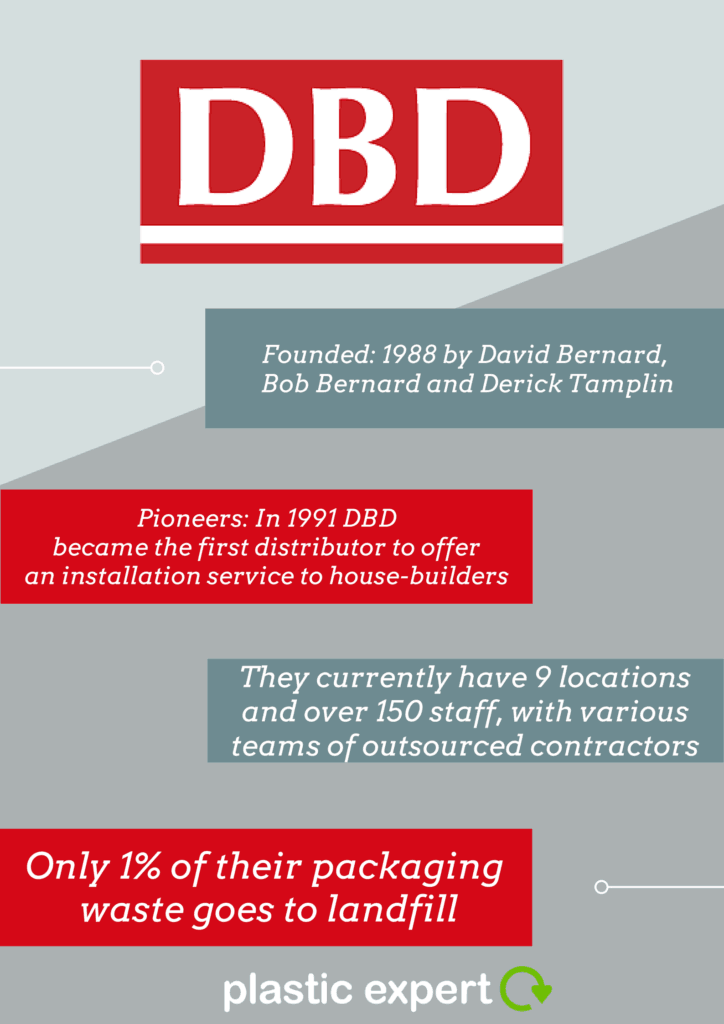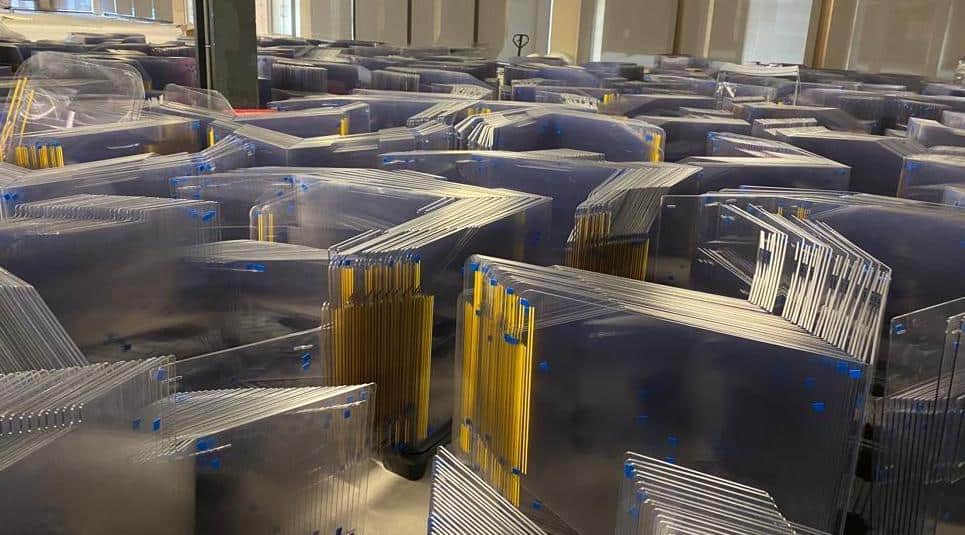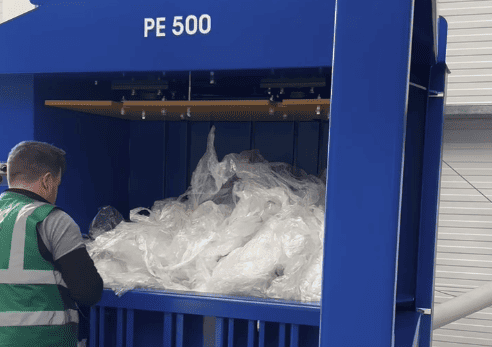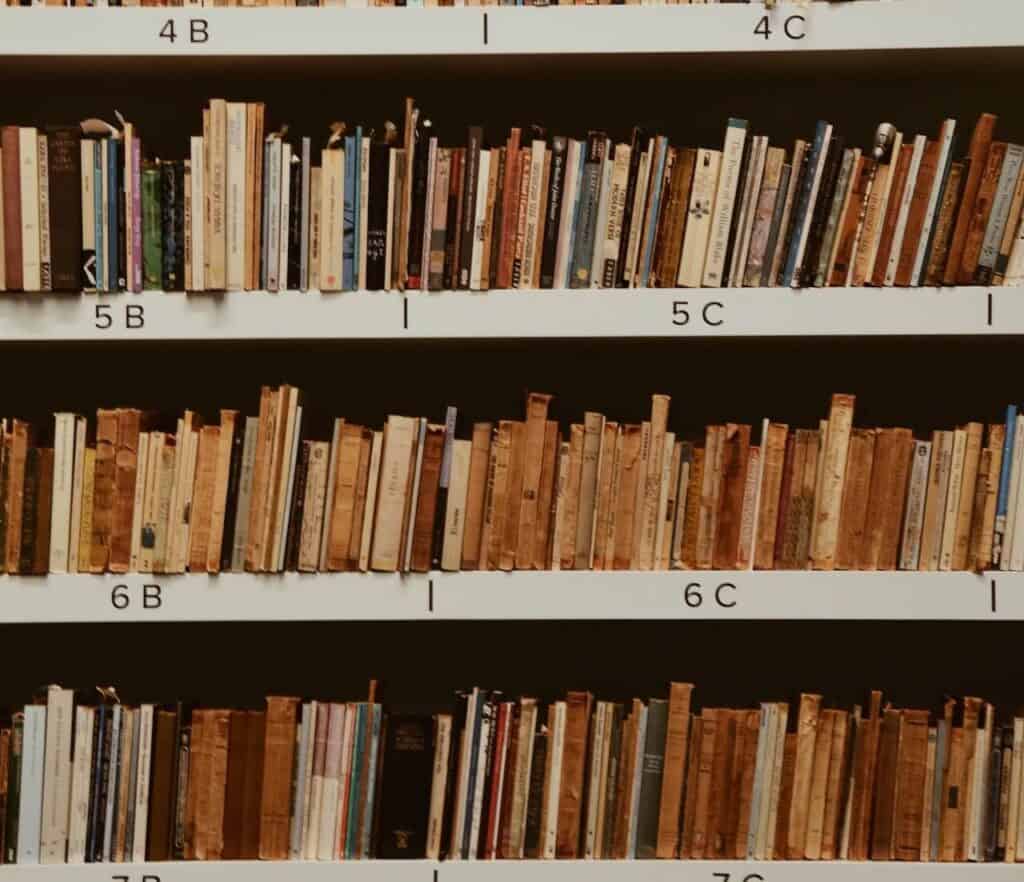Plastic Expert partners with DBD to maximize their recycling potential
“We are not content with “OK” – brilliant is the standard” DBD
We have been working with DBD’s head office and distribution centre in Hemel Hempstead, Hertfordshire, to deliver outstanding recycling rates, reduce the carbon footprint of collections and reduce costs, by turning their waste into a profit.
When did your business start measuring it’s social and environmental impact, and how?
We decided to make the change recently to become more environmentally friendly, though through the entirety of the business there have been precautions taken. The bulk of the work has really been done in the last three to five years. We have a facilities manager who looks to make the business premises better internally. At the moment he is estimating the cost of switching the entire building to energy saving light bulbs, and he’s always looking for things to do to improve our energy efficiency.
Can you tell us a bit about your recycling policy and process, and a bit about backhaul?
All nine locations feed waste to Hemel Hempstead in bulk on the way back from deliveries. When we deliver goods to one of our depots, we load the lorry with recyclable goods. Anything that can’t be recycled is fed into skips that we have at each locations. We use the backhauling system to reduce our carbon footprint.
How has this process and policy helped your business?
Hugely. Compacting materials was expensive, but luckily now even with waste costs we make enough money from selling our materials to Plastic Expert that we break even. I’m confident that we are making the best choice for the environment. We are concentrating on efficiency and ethics and these come as part of our package when we deal with a new partner or client.
How do you look into your supply chain for ethical sourcing? Why do you do this and how do you measure it?
We have a supplier vetting process to ensure that we only receive the best of materials, in terms of quality and ethics. We ask them about their business standards, about their supply chain, their approach to business and how efficient they are. To be a potential supplier, a vetting form must be filled out, and we are careful to make partnerships with ethical businesses. I consider the industry to be a bit slow to the whole environmental movement, so DBD tries the find the best partners in the market, irrelevant of cost. For us, ethics can come over price when it comes to major suppliers.
What’s most important to you from a recycling partner?
We need a good service and a quick turnaround. They must be ethical and consistent. We want to maintain relationships over the long term, it’s no good having on-off relationships. To keep a recycling partner we need to maintain the service and the price.
When attracting new business, do you find it an advantage being green?
It’s part of our sales pitch to enlighten potential clients to our green and environmental policies and materials. Partially, we are hoping to raise awareness, as it’s something we consider to be quite important. It’s going to make us better with time and it’s a great advantage to have; one that can swing a sale in the right direction.
Some partners can be a bit behind the times, both in agenda and a disinterest in resource efficiency, but for us, ethics is one of the four pillars of our business.
Ethical
Flexible
Innovative
Customer focused
What are your tips to any business looking to reduce their environmental impact?
Look at the bigger, bigger, picture. It’s not about the cost now, but the cost later. Be innovative, collaborate with people who have big ideas, be open-minded and listen to ideas about change and society. If a business is only interested in the now, then they are not looking at growth. That could be the fault of a broken employee mentality that goes like ‘I may not be here in 5 years, I want things to work right now’. That attitude has to be rectified.

